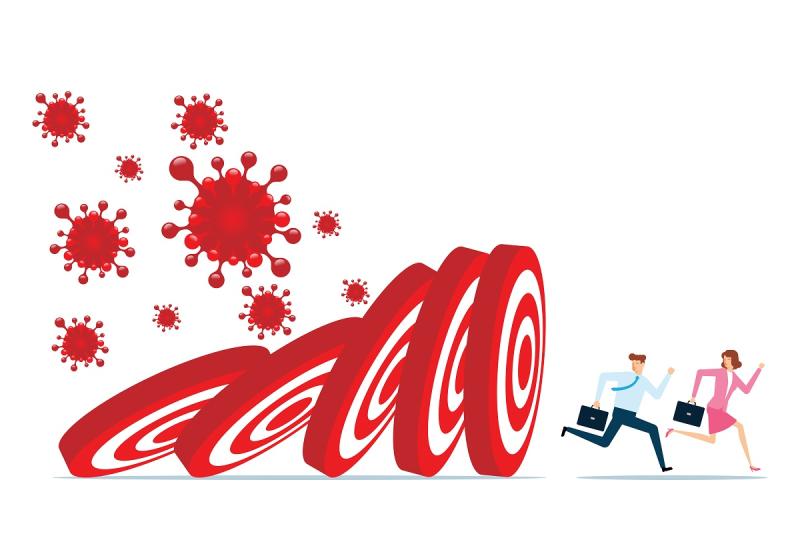
Article
Selling Medical Devices in the Era of COVID-19
Prior to the coronavirus pandemic, physicians had little available time. In fact, a 2018 study revealed 80% of physicians reported that they have no time to see more patients. The same could be said for 1:1 meetings with sales reps.
Now, COVID-19 has further challenged traditional medical device sales practices. So how do you compete with time restrictions and social distancing standing in the way?
Here are some solutions to overcoming this challenging environment for medical device makers.
Solution #1 – Sharpen Audience Focus
It may be tempting to aggregate your HCP audience and take a one-to-many approach during this period. But physicians and healthcare centers have been impacted differently, so it’s even more critical to understand what HCPs are going through during this crisis—both as an organization and individually.
Build a laser focus on your audience, specifically by roles. You’ll have to create a strategy that addresses the concerns of not only physicians but support personnel, purchasing agents, and P&T committees.
Some HCPs may be more likely to engage in real-time while you are virtually face to face. Others will prefer that you provide them with resources and data they can return to at a later time. You’ll need to tailor your approach based on their personal preferences and the varying impacts of COVID-19 on healthcare professionals.
Solution #2 – Highlight Your Value Proposition Early
While value-based selling has risen since the Affordable Care Act was enacted, COVID-19 has added an extra urgency to selling your value within the care continuum. With so much disruption in healthcare settings and competition for available time, it’s critical to express value early in your sales engagement. Discussing product attributes and brand credibility are still important, but now your value proposition has to be front-and-center in your interactions with HCPs.
For example, telemedicine has been sharply rising but patients continue to desire close relationships with their doctors. So explaining how your device provides a high level of patient-physician interaction, which may elevate clinical performance and care value, is crucial to persuading HCPs and formulary committees.
Solution #3 – Leverage Social Media
Research shows that 90% of physicians are social media consumers, using social channels to find relevant information related to patients, therapies, and more. In addition, a 2019 study by Elsevier found that globally around 50% rely on social media to keep up with healthcare news.
This evidence suggests you should explore ways to fully leverage the connective nature of social media by “chatting” with HCPs and building trustworthiness and fostering relationships. Announce new events and training opportunities via social channels. And use social media to send traffic to data sources and resource libraries that feature your products. For additional insights, read this related article.
Solution #4 – Build Relationships Virtually
Social distancing has all but eliminated in-person visits, so you have to pivot to virtual meetings effectively. Focus on being efficient with your time (and theirs): use screenshares, digital whiteboards, chatroom links, and other features to support the conversation, so HCPs have as much detail and resources possible in the limited amount of time they can spare.
While results and data are important to HCPs, they are human beings who want your story to be relatable. They don’t simply want to know success rates. Share patient experiences with your product or build rapport by inquiring and supporting physician pain points. Explain how a patient’s life could be different if your device solves their health issue.
Solution #5 – Boost SEO Practices
Getting discovered when HCPs are searching for medical solutions online is even more important than it was prior to COVID-19. Device marketers have to focus on ensuring website pages, PPC ads, resource pages, and others are keyword optimized.
In addition, it’s important to show expertise, authoritativeness, and trustworthiness with the quality and types of content you produce. Google has placed a firm emphasis on these qualities in recent years. By exhibiting E-A-T, your pages are likely to get more backlinks, which helps boost your rankings. For more tips on SEO, read this related article.
As part of Elsevier’s initiative to support medical device manufacturers in their marketing efforts, we’ve introduced a self-service article portal for HCPs, filled with specialty-based resources from hundreds of international journals. Watch our introductory video today!
Article Written by: Alex Brown


